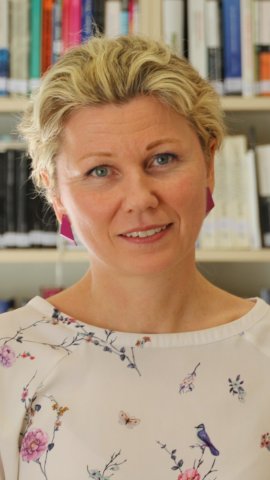Digital Administration
Master's
The programme will not admit students for autumn 2025. Please check this website for future announcements.
- The programme is based on Estonia's 30 years of experience in building Europe's number one digital public services governance system and its related technology business ecosystem.
- The programme offers the possibility of completing a full executive education degree in a 90% online format.
- The University of Tartu is ranked among the top 230 universities in the world for politics (see Rankings and Surveys).
- Estonia, known as e-Estonia, is one of the world's most advanced digital societies. It has the most startups and the most unicorns per capita in Europe. As of 2022, Estonia has been the birthplace of 10 unicorns.
- Participants will be able to learn about digitising the public sector from experts with unique experience gained in the world's leading digitiser of public services.
- Toomas Hendrik Ilves, the former president of Estonia and a key figure in Estonia's digital development leap, is the programme's main patron and guest professor. Read further: President T. H. Ilves joined the University of Tartu in writing the next chapter in the global digital story.
The innovative one-year master's programme in Digital Administration (MDA) aims to train high-level public or private sector officials, top public servants, Chief Digital Officers, senior executives, positions in public administration and IT specialists operating at the strategic level. All high-level officials in the public or private sector who lead a comprehensive digitalisation of the sector and public administration. The MDA programme is based on Estonia's experience in building a digital state and the related technology business ecosystem.
This involves:
- acquiring knowledge on the foundations of digital governance, guiding principles behind it and necessary technological conditions;
- being able to recognise specific practical use cases where a highly digitalised public sector provides effective and efficient governance and increases the quality of life through developing various digital services that cross domain boundaries, capture unique data and use it in novel ways.
This Digital Administration programme will answer questions like:
- How to develop a digital government that people use and trust?
- How to build and govern new human-centric digital services?
- How to implement e-government components on every state level?
- How can work culture be optimised with digital technology?
- How to educate society to harness the full potential of a digital nation?
The MDA differs from other similar programmes in four important ways:
- It is an online education one-year master's programme, which includes two physical sessions with top Estonian experts (one week at the beginning and a second week at the end of the programme).
- It includes a specialisation module that focuses on four separate domains in depth.
- It has general courses that are designed around actual use cases.
- Its graduates are trained not only as general managers of e-governance but as practitioners who recognise e-governance use cases across disciplines.
MDA: Incorporating Entrepreneurial Practice
The MDA curriculum is unique in that it combines four elements: (1) global reach and executive focus; (2) practical orientation; (3) multidisciplinarity with its "future skills" toolbox aimed at digital leaders; (4) entrepreneurial focus; and (5) online education format of study.
- The programme's focus and scope are global, and it is one of only a few specifically designed for senior public servants, professionals, and IT specialists. MDA participants will benefit from networking opportunities with top experts in e-governance throughout the programme and after it is completed. Such connections are invaluable as these top experts can continue providing practical assistance in establishing digitalised public services when participants have graduated and begun working in the field.
- Compared to other programmes, the curriculum takes a more practical and hands-on approach, as it applies the principles and specific examples and applications of Estonia's unique e-governance ecosystem, which has already been launched and is based on real-time solutions for machine learning and artificial intelligence. Such an approach takes the ideas and practices surrounding digitalisation from strategy to code, going beyond theories of digitalisation, with help from those who have already put them into practice.
- The programme not only capitalises on the strength of multidisciplinarity by bridging IT and non-IT related disciplines in its curriculum, but it also brings together two groups of professionals who are typically not included in the same study programmes when it comes to the subject of e-governance and digitalisation: experts with a wealth of technological and digital knowledge and civil servants with extensive governance and public administration experience.
- No other curriculum is so strongly related to entrepreneurship, thanks to the lessons learned from the founding of the Estonian digital state. An important lesson was that the preconditions for its successful digital development were closely linked to the private sector. The lecturers are leaders and specialists from Estonian unicorns who participate in the curriculum and actively facilitate and incentivise cross-sector interaction.
- The programme is one of the few that allows participants to complete a full executive education degree as online education. Those who are accepted will have access to high-quality video lectures, practice labs, guided projects, assignments, prompt technical support, and personalised guidance to ensure a positive learning experience.
While the digital revolution in the private sector advances by leaps and bounds, the public sector worldwide largely remains stuck in the 20th century. Rated by the European Union and the United Nations as the number one country in the digitalisation of governance and public services, Estonia now offers a new master's degree programme, Digital Administration or MDA. The year-long course of study at the University of Tartu is meant to provide the necessary skill set for government officials, civil servants and IT professionals from outside Estonia to implement and integrate digitalisation into their public sectors.


Estonia: the world's number-one digital leader
Based on Estonia's unique experience in developing Europe's number one digital public services governance system, as well as its related technology business ecosystem, the goal of this world-class and innovative one-year master’s programme is to train senior public servants, professionals, and IT specialists to be leaders in the comprehensive digitalisation of the public sector.
According to the DESI digital public services scoreboards for 2022, Estonia is the world leader in digitalising public services. Estonia is also a great place to develop a start-up and be an entrepreneur, as it leads Europe in start-ups per capita. Ten unicorns were founded or are based in Estonia, a small country with a population that is a little over one million.
Due to Estonia's success and extensive experience as a leading "digitiser" in Europe and the world, as well as the growing interest of foreign governments in adapting Estonia's digital solutions, the Digital Administration master's programme addresses the need for modernising the public sector, transition to e-governance and paperless management. As well as the need for equipping civil servants and IT professionals worldwide with the necessary skill set to integrate and implement digitalisation strategies in their respective home countries.
Estonia is also well-known for e-residency and e-voting and for being a leader in digital governance. Taking everything into account, Estonia is the best-suited country to learn about the digitalisation of the public sector and its services, as few other countries can compete with the type of unique experience and digital ecosystem that Estonia has created. This results in a master’s course unlike any other in the world. Granting those with the drive and ability to pursue this course an opportunity to gain knowledge and experience only found in Estonia.
Programme sponsors
The sponsors support the participation of Toomas Hendrik Ilves, the former President of Estonia, in the programme.
|
Image
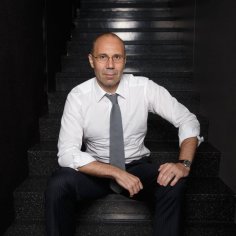
|
Andres Viisemann – Co-Founder of LHV Bank, Member of the Supervisory Board in LHV Bank, Fund Manager of active funds in LHV Bank |
|
Image
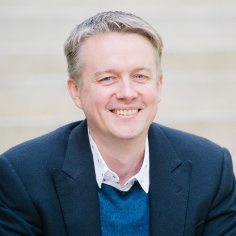
|
Jaan Tallinn – Co-Founder of Skype, Co-Founder of the Centre for the Study of Existential Risk, Co-Founder of the Future of Life Institute |
|
Image
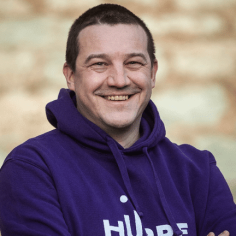
|
Sten Tamkivi – Co-Founder of Teleport, Co-Founder of Plural Platform, Former General Manager of Skype |
|
Image

|
Taavet Hinrikus – Co-Founder of Wise, Co-Founder of Jõhvi Coding School, Former Director of Strategy at Skype |
|
Image
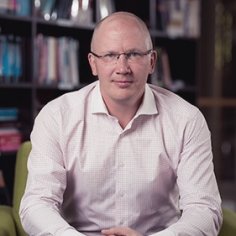
|
Priit Alamäe – Founder and CEO of Nortal |
Programme highlights in video
- Watch the presentation about International master's admissions by the Head of International Admissions during Virtual Open Day 2024.
Courses
The study programme consists of ten specially designed courses. Every course is four weeks long, with the fifth week for evaluation. Live meetings will take place once a week, on Thursdays, for six hours. Each session will be divided into two courses and the capstone project preparation.
The MDA programme courses are the following:
- Looking Forward: Digital Future of Government (28 August – 24 September)
- Digitisation of Human Capital (28 August – 24 September)
- Integration of Digital Services with Life-events (2 October – 29 October)
- Digitalising Government Business Processes (6 November – 3 December)
- Data Privacy, Security, and Ethics (13 November – 10 December)
- Digitalising Democracy (2 January – 28 January)
- Healthcare's Digital Future and Personalised Medicine (5 February – 3 March)
- Digital Education Beyond the Classroom (11 March – 7 April)
- Digital Environments to Protect the Natural Environment (15 April – 12 May)
- Digital Labour Market and Service Management (20 May – 16 June)
Participants will have access to high-quality video lectures, practice labs, guided projects and assignments, and prompt technical support and personalised guidance to ensure the smoothest learning experience.
Format
The master's programme in Digital Administration is among very few that offers the possibility to complete a full executive degree in a 90% online education format. The programme begins with a week-long meeting in Estonia at the end of August but is otherwise entirely an online education. Participants are invited to return to Estonia at the end of the programme to present their capstone projects to an international evaluation committee and network with potential partners.
Course and module details
This programme structure is the latest one confirmed by the university. Next year's modules will be updated by 15 April. Significant changes to the programme will be announced in advance on this website. Check the Study Information System for the latest updates.
Curriculum version:
More info: Study Information System
Johan Skytte Institute of Political Studies
The Johan Skytte Institute of Political Studies at the University of Tartu is a part of the Faculty of Social Sciences. The institute is located in the heart of Tartu.
The institute's bachelor's, master's and doctoral programmes have been created to develop students' academic competence and personal growth. To achieve this, its international team is focused on knowledge-based research, quality education, and active learning.
To achieve a better and deeper understanding of society, the Skytte Institute hosts the Center for EU–Russia Studies, the Centre for Applied Social Sciences, and various additional research units.
Read more about the Johan Skytte Institute of Political Studies here.
People
- Prof. Toomas Hendrik Ilves is the former President of Estonia, a major supporter of the master's programme in Digital Administration (MDA), and a lecturer of the course "Looking Forward: Digital Future of Government."
- Dr Kristjan Vassil is the Associate Professor of Technology Research and a lecturer in the course "Digitalising Government Business Processes."
- Dr Mihkel Solvak is the Manager of the Centre of IT Impact Studies, an Associate Professor of Technology Research, and a lecturer in the course "Integration of Digital Services with Life-events."
- Dr Liina Kamm is a Senior Researcher at Cybernetica and a lecturer in the course "Data Privacy, Security, and Ethics."
- Prof. Vincent Homburg is an ERA Chair Professor of e-Governance and Digital Public Services at the University of Tartu, an Associate Professor at Erasmus University Rotterdam, and a lecturer in the course "Looking Forward: the Digital Future of Government."
- Dr Emanuele Bardone is the Director of the master's programme in Educational Technology, Associate Professor of Educational Technology at the Institute of Education at the University of Tartu's Faculty of Social Sciences, and a lecturer of the course "Digital Education Beyond the Classroom."
- Liisi Jürgen is the Head of IT Law, Attorney at law, Partner at NJORD Law Firm and a lecturer of the course "Digitisation of Human Capital ".
- Siim Erik Akermann is the Focus Area Manager of Digital Technologies at Enterprise Estonia and a lecturer of the course "Digital Labour Market and Service Management ".
- Marki Tihhonova-Kreek is the Director for Smart Government Transformation at Nortal and a lecturer of the course "Digital Environments to Protect the Natural Environment ".
- Dr Kaja-Triin Laisaar is the Head of the Institute of Family Medicine and Public Health of the University of Tartu, Research Fellow in Epidemiology and a lecturer of the course "Healthcare's Digital Future and Personalised Medicine ".
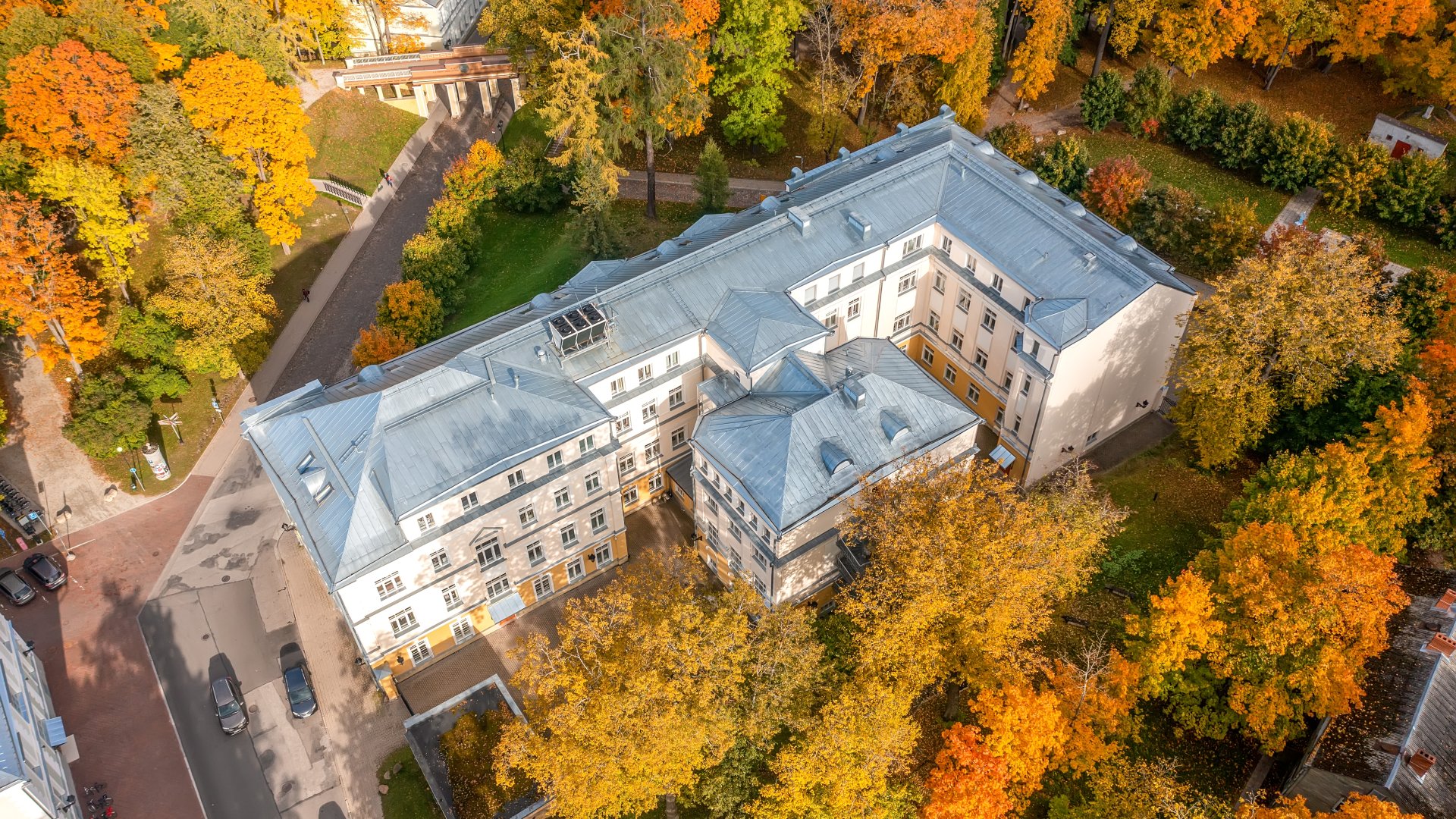
Visit us virtually
Explore Tartu, the Johan Skytte Institute of Political Studies, and the student dormitories through the university's virtual tour.
The master's programme in Digital Administration provides a unique opportunity to learn from the top experts and to draw inspiration from the digitalisation experience of the world's leading digital nation.
It goes without saying that not all aspects of Estonia's digital solutions can be directly implemented, as each country has certain peculiarities that must be considered. Our MDA programme, however, addresses that issue. The programme's experts can always be consulted during and after the online study period should participants wish to seek assistance with practical public service digitalisation projects which participants have in mind for other countries.
Upon graduating from the master's programme in Digital Administration, learners will acquire a comprehensive digitalisation toolbox, which can be customised according to their countries' specifics, needs, and requirements and used to implement the strategies that can become the code guiding how a country operates. The owner of such a priceless toolset has the potential to be a great change-maker in this era of rapid digitalisation.
The increasing need to modernise the public sector and to equip civil servants with up-to-date skills should not be feared by those with a lack of knowledge in the field of IT – our master's degree programme is designed for both IT and non-IT professionals as the tangible digital transformation is only possible through collaboration between these two groups.
In today's world, the ability to adapt and acclimate to the latest changes and challenges is critical; it is precisely from these changes and challenges that digital development and evolution emerge. However, it is a personal decision for all of us whether to fear or seize all possible opportunities and overcome them whilst also growing and thriving.
Upon graduating from the MDA programme, participants will also have a network of expert colleagues to help them pursue or advance a career in the field. Another benefit of the master's programme is the opportunity to meet like-minded people who are not afraid to admit that they do not know everything and are eager to learn and grow, which are rare and valuable traits for those who wish to change things.
You must feel ready for new things and then take your own decision. Life gives us opportunities that we cannot even sometimes dream about – therefore; one must embrace any opportunity that comes along. For both older and younger generations, this means getting used to changing jobs or even career paths at various times throughout their life and always being open to new challenges.


Admission requirements for Digital Administration
- Master's degree and at least 3 years of professional experience as an industry specialist or senior manager in the field of digitalisation. For assessment of professional experience, you are required to upload your CV. For this programme, we implement the same country-specific document requirements as for applicants of doctoral studies. Please see our country-specific educational document requirements.
- English language proficiency – please see our acceptable tests and exempt categories
NB! The restrictions for the citizens of the Russian Federation are specified here.
Applications are evaluated based on
- the score of the motivation letter (yields 50% of the final score)
- the admission interview (yields 50% of the final score)
The motivation letter (in English, up to 4000 characters with spaces) should address the following points:
- Motivation for applying for the program and how the previous education and work experience relate to it;
- Future career plans and how the knowledge, skills, and experiences acquired through the program would help to achieve this;
- Specific research interests within the field of digitalization.
Evaluation criteria
Each letter will be evaluated based on the following criteria:
- Well-argued reasons for applying for the program; the relevance of previous education and career path in selecting this program (40%)
- Concise overview on how the knowledge acquired through the program will help achieve the envisioned future career path (40%)
- Substantive example(s) of research interest and the connections with the content of the program (20%)
The maximum score for the motivation letter is 100 points and minimum positive score 51 points. The applicant needs to receive at least 51 points for the motivation letter, in order to be invited to the interview.
The interview is a follow-up to the motivation letter.
It will last about 30 minutes and will be held electronically. The invitation with the online link will be sent to the candidate a few days prior. In the interview, the candidate should be ready to discuss their motivation to take up studies in the MDA programme. The candidate should be also able to describe their research interests in relation to the study programme as well as the practical knowledge they hope to get out of the programme. We will also inquire about the candidate's preparedness to adjust to an intensive online study program.
The maximum score for the interview is 100 points. Each interview will be evaluated based on the following criteria:
- Motivation and ambition (70%);
- Identification of specific research and practical interests compatible with the substantive content of the programme (20%);
- Oral argumentation skills and command of the English language (10%).
For each assignment, the maximum score is 100 points and minimum score 51 points to be considered for admission. The applicant needs to receive at least 51 points for the motivation letter, in order to qualify for the admission interview. After the interview, the final admission score is calculated. The total admission score will be the weighted sum of the score of the motivation letter and the interview. The maximum number of final points is 100. Only applications which receive 66 points and above as a combined score from both indicators will qualify for admission.
Further information on assessing candidates´ academic performance and calculating admissions´ score.
How to apply
The following information applies to international students and Estonian students who graduated abroad:
The application system opens on 2 January and closes on 15 March. The following documents must be submitted electronically via DreamApply by 15 March:
- online application
- motivation letter
- official certified copies of both bachelor's and master's diplomas and diploma supplements (bachelor's and master's transcript/mark sheet, including the description of the grading scale) in the original language. NB! Applicants graduating master's studies in the upcoming spring/summer and having their diploma and final transcript issued later than the application deadline should electronically submit their most recent official transcript by the application deadline. The transcript should be supplemented by an official statement from the issuing institution indicating current enrollment and expected graduation date. Admitted candidates are required to post certified copies of their graduation documents as soon as these have been issued (must reach us no later than by the end of July). NB! For this programme, we implement the same country-specific requirements as for applicants of doctoral studies. Please read our country-specific requirements for submitting your educational documents.
- official translations of the bachelor’s and master's diplomas and diploma supplements (transcripts) into English, translation certified
- proof of English language proficiency
- copy of the passport page stating the applicant’s personal particulars
- curriculum vitae
Submitted applications can not be edited. It is only possible to upload new documents (e.g. graduation certificates). Applicants will receive feedback and notifications through the DreamApply system to their e-mail. Incomplete applications or those submitted by e-mail will not be considered for admission.
Guide to submitting an electronic application on DreamApply.
NB: The University of Tartu has no official partnerships with agents or educational representatives. We strongly recommend applying directly to the university without the help of unauthorised third-party entities. Should you use such a service, please ensure that your application's contact information is your personal details (your e-mail, phone number, etc.).
The evaluation of applications will be made based on the electronic copies added to DreamApply. A general ranking list will be formed based on the electronically submitted applications and admission results (including offers) will be announced to all applicants personally via DreamApply by April 30 at the latest. Admitted candidates are expected to accept or decline the offer in DreamApply in 7 days. If the decision is not communicated to UT via DreamApply by the stipulated deadline, UT reserves the right to withdraw the admission offer.
NB! It is not possible to postpone the beginning of studies to the next academic year.
Terms and conditions of the admission offer
Admission offers are conditional. This means that there are conditions in the offer which the applicant needs to fulfil in order to be admitted (e.g. sending application documents by post; obtaining the required level of education). If the conditions are not met, UT has the right to withdraw the offer. Also, UT reserves the right to withdraw or amend any offer or revoke the matriculation of a student, if it becomes evident that the application contains fraudulent information, the qualification does not provide access to the chosen study programme or the student is found to have omitted key information from the application. Should such circumstances occur, UT will not be liable for any material or immaterial loss which the student may suffer as a result.
Once the admission results have been announced, all admitted students are required to send the application documents by post to: Student Admissions, University of Tartu, Ülikooli 18-133, Tartu 50090, ESTONIA.
The documents are expected to be mailed only by those receiving the admission offer (unless instructed otherwise by the admissions staff). The documents must reach the university within 3 weeks from the announcement of the offer. If the application documents do not reach us by the deadline, the university has the right to withdraw the admission offer. Applicants will be informed when their documents have arrived.
Requirements for educational documents
All copies of educational documents (diplomas and Diploma Supplements/transcripts) must be officially certified. By certified we mean that the copies should bear an original signature and seal of the authority certifying that these are true copies of the original document(s). The copies can be certified either 1) by an authorised official of the issuing institution, or 2) by a notary, or 3) with an Apostille attached. NB! Country-specific requirements may also specify the way documents from certain countries must be certified.
Please note that UT does not accept simple copies made on the basis of already certified copies (primary copies are needed).
Paying the tuition fee (applicable to those receiving a fee-based study place offer)
- EU/EEA/Swiss citizens are required to pay the fee for the first semester by 20 September at the latest after signing the fee contract, please read more here.
- Admitted students from other countries are required to pre-pay half of the first semester's tuition fee. The invoice along with the pre-payment deadline and payment details will be sent to applicants via DreamApply after they have accepted the admissions offer and the University has received the hard copies of the application documents. Second part of the fee is due on 20 September. NB! The official admission letter (necessary for visa application) will only be issued once the University of Tartu has received the pre-payment.
- By transferring the pre-payment to the university, you confirm that you have informed yourself about the process of the visa application and you are able to arrive in Estonia by the start of the academic year. If you have any questions please contact studentvisasupport@ut.ee.
The official admission letter will be sent to admitted students electronically via DreamApply only after the admissions office has received and reviewed hard copies of the application documents, and received the tuition fee pre-payment (if a pre-payment was required, please see step 3 for more details).
NB! The electronic admission letter is also sufficient for non-EU students for applying for visa at an Estonian embassy.
The programme offers the possibility of completing a full executive degree in a 90% online format.
Please note that in this programme, students are expected to participate in the contact session in Tartu for one week at the beginning and one week at the end of the programme. For non-EU students, short term (Schengen visa or C visa) is sufficient. Please see our visa application process.
Based upon common queries, the most important information has been summarised into a pre-arrival information website, UT Getting Started.





